Predicting Canada's Roster for the 2025 World Cup of Hockey
Predicting Canada's Roster for the 2025 World Cup of Hockey
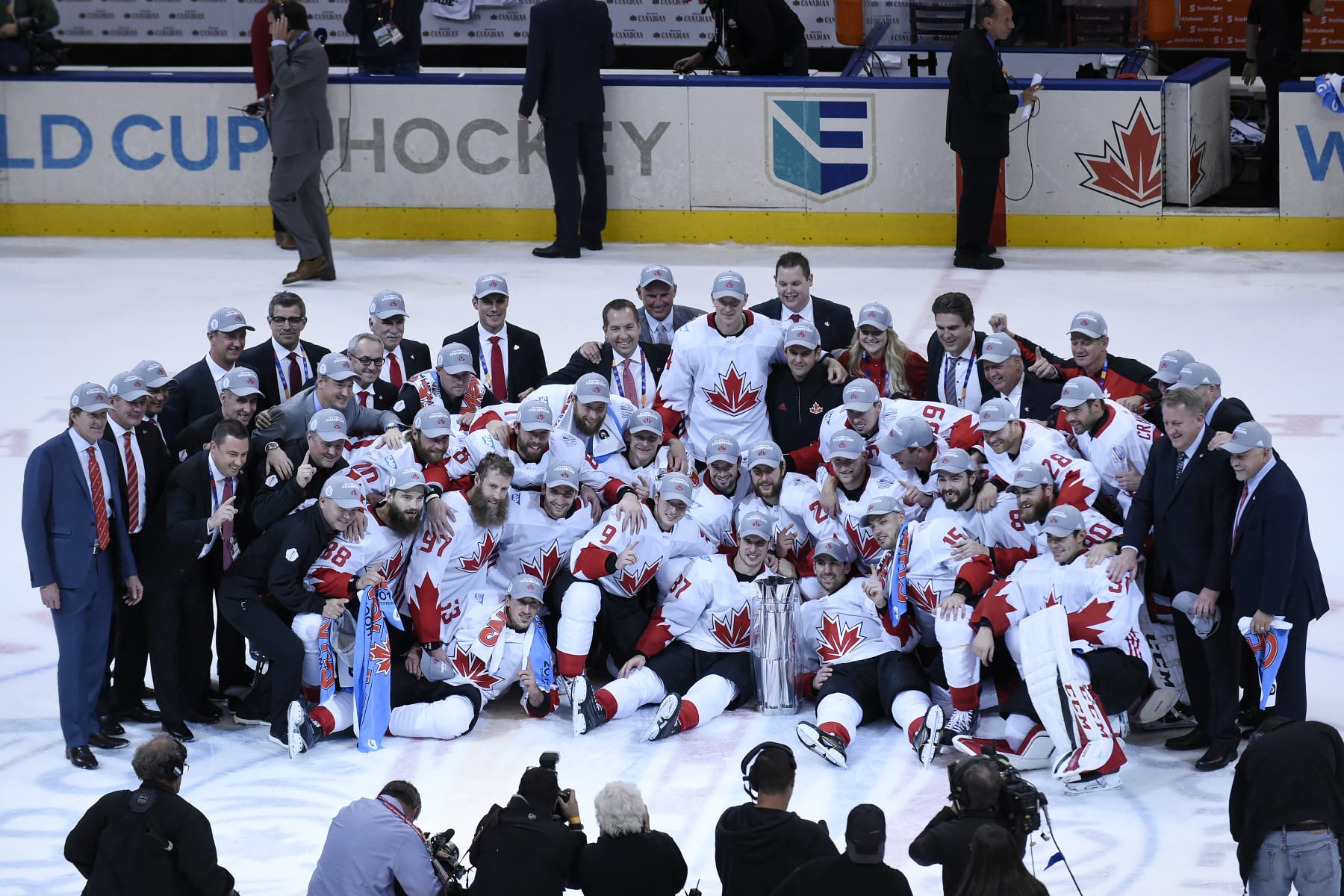
Hockey fans will have a longer wait to see the game's top professionals face off in international competition. On Nov. 11, the NHL and NHL Players' Association released a joint statement indicating the World Cup of Hockey—originally scheduled for February 2024—was being pushed to February 2025.
A major reason for the decision was uncertainty over whether Russia would ice a team in the NHL-run tournament. The league has aligned with the International Ice Hockey Federation's suspension of Russia from international competition over that nation's invasion of Ukraine until further notice.
The last World Cup of Hockey was held in 2016. The NHL skipped the 2018 Winter Olympics in Pyeongchang, South Korea, and withdrew from the 2022 Beijing Winter Olympics because of COVID-19 concerns.
Nevertheless, as soccer's World Cup begins, we'll have some fun and predict what Canada's roster might look like for the 2025 hockey tournament.
We projected Canada's roster in February when it appeared a World Cup would take place in 2024. Many of the players from that list made the cut again, but we've also made several notable additions.
Do you agree or disagree with our picks? Is there someone you believe should or shouldn't be part of Canada's 2025 World Cup of Hockey roster? Let us know in the comments section.
Goaltenders: Carter Hart, Tristan Jarry, Darcy Kuemper
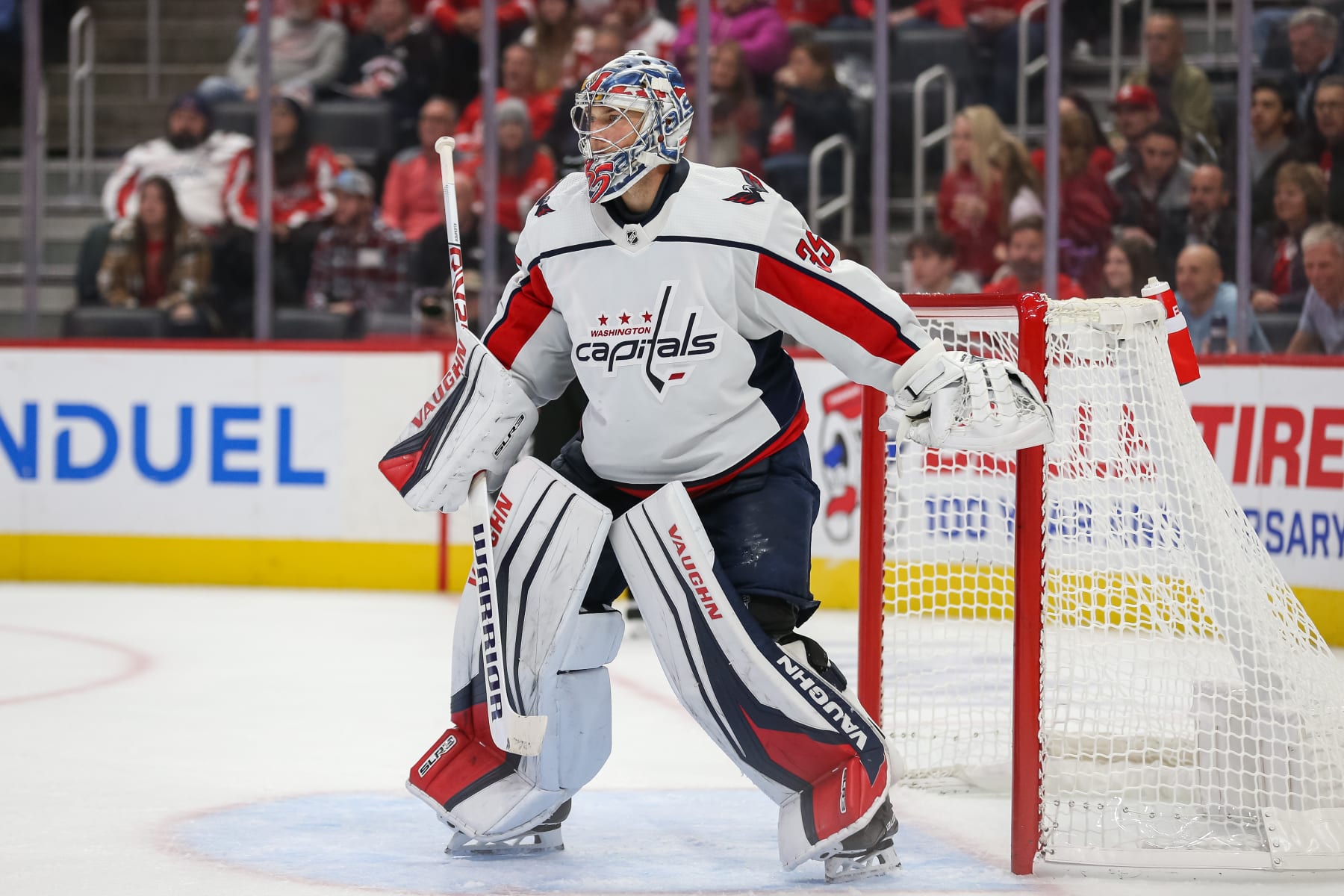
It wasn't long ago that the Montreal Canadiens' Carey Price and the Minnesota Wild's Marc-André Fleury would've been slam-dunk selections as Canada's World Cup of Hockey goaltenders. Price backstopped Canada to gold in the 2014 Winter Olympics and the 2016 World Cup, while Fleury is a three-time Stanley Cup champion.
However, with the 35-year-old Price's career in jeopardy because of a knee injury and the 37-year-old Fleury at the tail end of his career, Canada will have to turn to younger options. The best choices could be the Philadelphia Flyers' Carter Hart, the Pittsburgh Penguins' Tristan Jarry and the Washington Capitals' Darcy Kuemper.
Hart, 24, is the youngest of the group. In his fifth NHL season, he's been Philadelphia's starting goalie for the past four seasons. His statistics suffered over the past two years on the struggling Flyers, but he's put up respectable numbers this season with a 2.65 goals-against average and .922 save percentage.
Jarry's stats have fluctuated over the past four seasons, but when he's on his game, he's put up solid stats. Since becoming the Penguins' full-time starter in 2020-21, the 27-year-old Jarry sits fourth among NHL goalies in wins (65) with a 2.63 goals-against average and .914 save percentage.
Kuemper, 32, has the most experience. Since becoming an NHL starter with the Arizona Coyotes in 2018-19, he sits among the top 10 netminders with 95 wins, a .921 save percentage and a 2.45 goals-against average. He's a proven winner, backstopping the Colorado Avalanche to the 2022 Stanley Cup and helping Canada win a gold medal at the 2021 World Championship.
Defense Pairing 1: Devon Toews and Cale Makar

The Avalanche's dynamic defense duo of Devon Toews and Cale Makar was crucial to their Stanley Cup championship run last season. They're among the NHL's best blue-line tandems, so it makes sense to keep them together for Team Canada. Given their ages and respective skills, they will still be in their playing prime for 2025.
Makar, 24, has become an outstanding all-around defenseman. He won the Calder Memorial Trophy in 2019-20 and took home the James Norris Memorial Trophy and the Conn Smythe Trophy last season. Since his rookie season, he leads blueliners with 15 game-winning goals and is third in points with 199.
The 28-year-old Toews has become one of the league's best shutdown defenders. He leads Avalanche skaters this season in short-handed time on ice per game (3:11) and sits second in time on ice per game (23:50) and tied with Makar for second in blocked shots with 29. He also contributes offensively with 11 points in 14 games.
Defense Pairing 2: Shea Theodore and Alex Pietrangelo
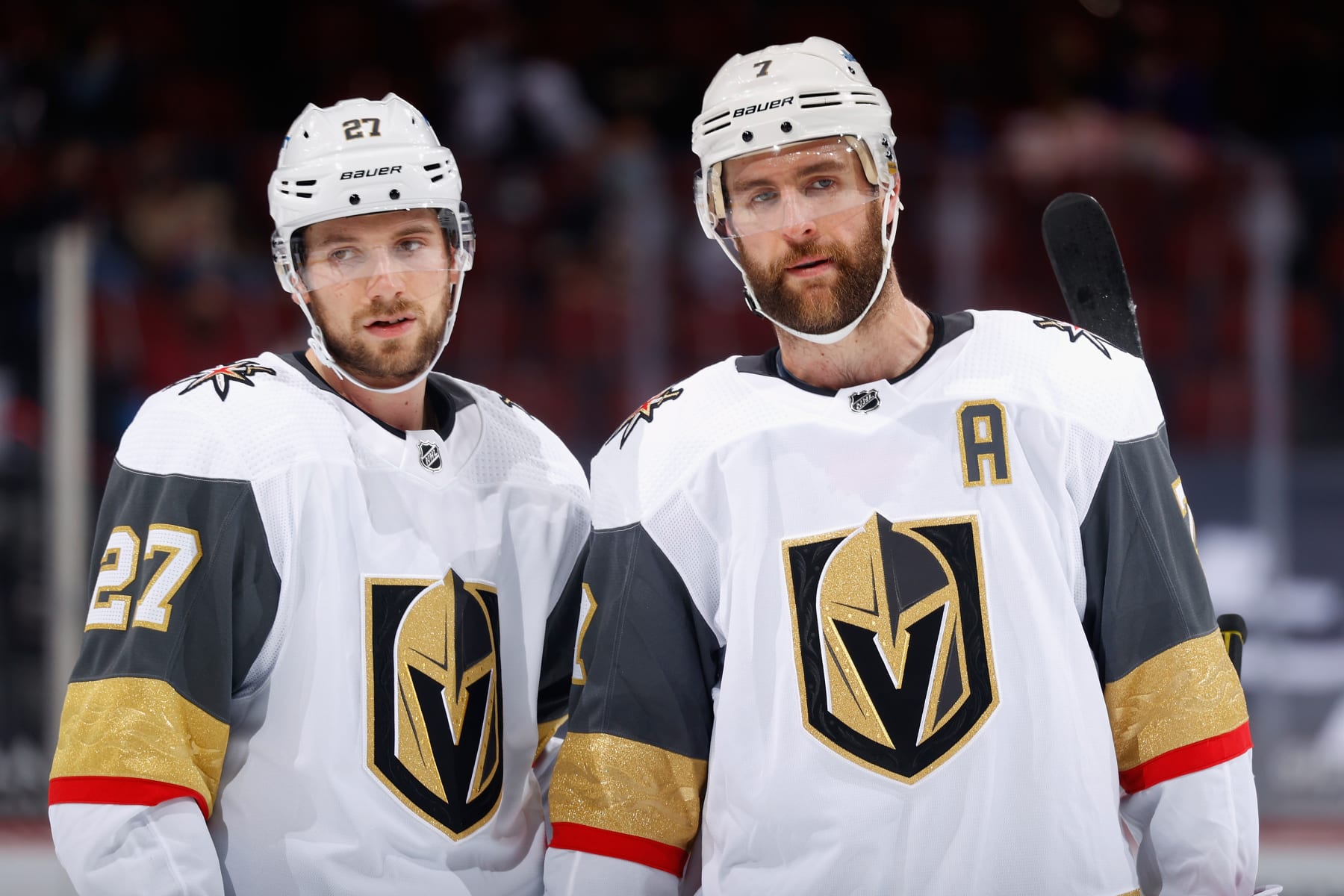
Vegas Golden Knights defensemen Shea Theodore and Alex Pietrangelo are our choices for Canada's second defense pairing. Though they play on separate lines in Vegas, they would make a formidable tandem. Theodore is skating on the right side of the Golden Knights' second pairing but can play the left side.
Turning 33 on Jan. 18, Pietrangelo will be 35 for the 2025 tournament. Nevertheless, he would bring considerable leadership and experience to Canada's blue line. Playing a strong two-way game, he logs a team-leading 23:32 of ice time per game and has netted 40-plus points in nine of his 15 seasons.
Theodore, 27, has steadily improved as a puck-moving blueliner since joining the Golden Knights in 2017-18. He enjoyed a career-high 52-point performance last season and sits second to Pietrangelo in time on ice per game with 20:58. Theodore is also second on the Golden Knights in puck possession with a 5v5 shot-attempt percentage of 55.2.
Defense Pairing 3: Owen Power and Aaron Ekblad
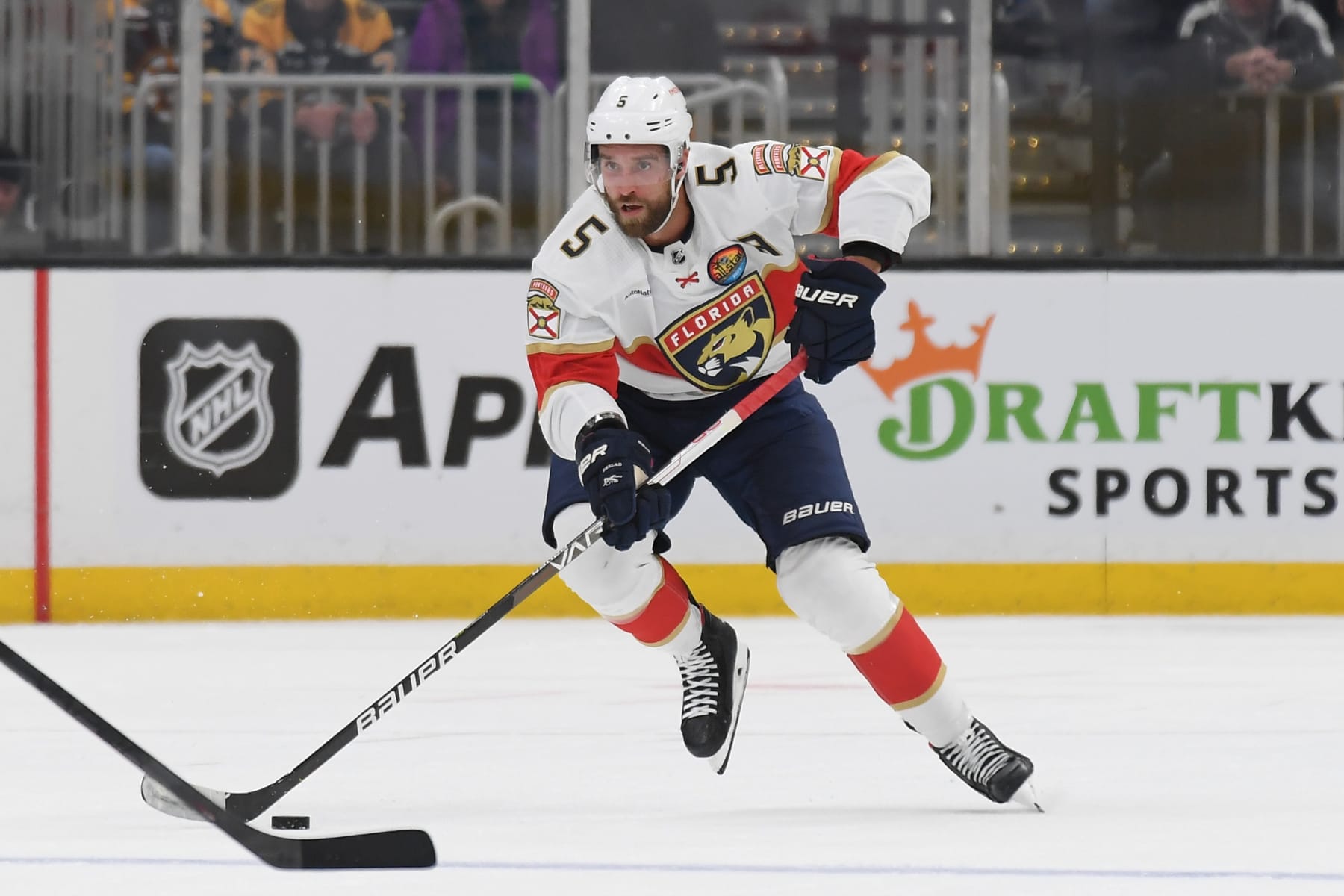
This pairing features one of the NHL's best puck-moving defensemen in the Florida Panthers' Aaron Ekblad skating alongside a promising young talent, Owen Power of the Buffalo Sabres. Given the depth of talent Canada can draw upon for the defense corps, they could be a solid mix of experience and potential.
Ekblad has been the anchor of the Panthers defense since winning the Calder Memorial Trophy in 2014-15. The 26-year-old has been hampered by injuries since 2020-21 but remains an elite mobile rearguard. He netted a career-high 57 points in 61 games last season while logging a team-leading 24:55 in time on ice per game.
Power, who turned 20 on Nov. 22, will be in his third full NHL season when the 2025 World Cup of Hockey rolls around. He could be established among the NHL's elite blueliners by then. Chosen first overall in the 2021 NHL draft by the Sabres, the 6'6", 218-pounder leads rookies this season in ice time (23:45) and can skate on the left or right side of the blue line.
Spares: Morgan Rielly and Noah Dobson
The workhorse of the Toronto Maple Leafs blue line, Rielly is a skilled, mobile defenseman who sits sixth in total points for defensemen (269) since his breakout performance in 2017-18. The 28-year-old is logging a team-leading 23:20 in time on ice per game and would slot in well on the left side on any of Canada's defense lines.
Dobson, 22, enjoyed his breakout campaign last season with a 51-point performance. The right-side rearguard is second on the New York Islanders this year in takeaways (14), sits second in ice time (20:53) and blocked shots (34) and is fourth in scoring with 12 points in 18 games. He'll be a seasoned veteran by 2025.
Forward Line 1: Jonathan Huberdeau, Connor McDavid and Nathan MacKinnon
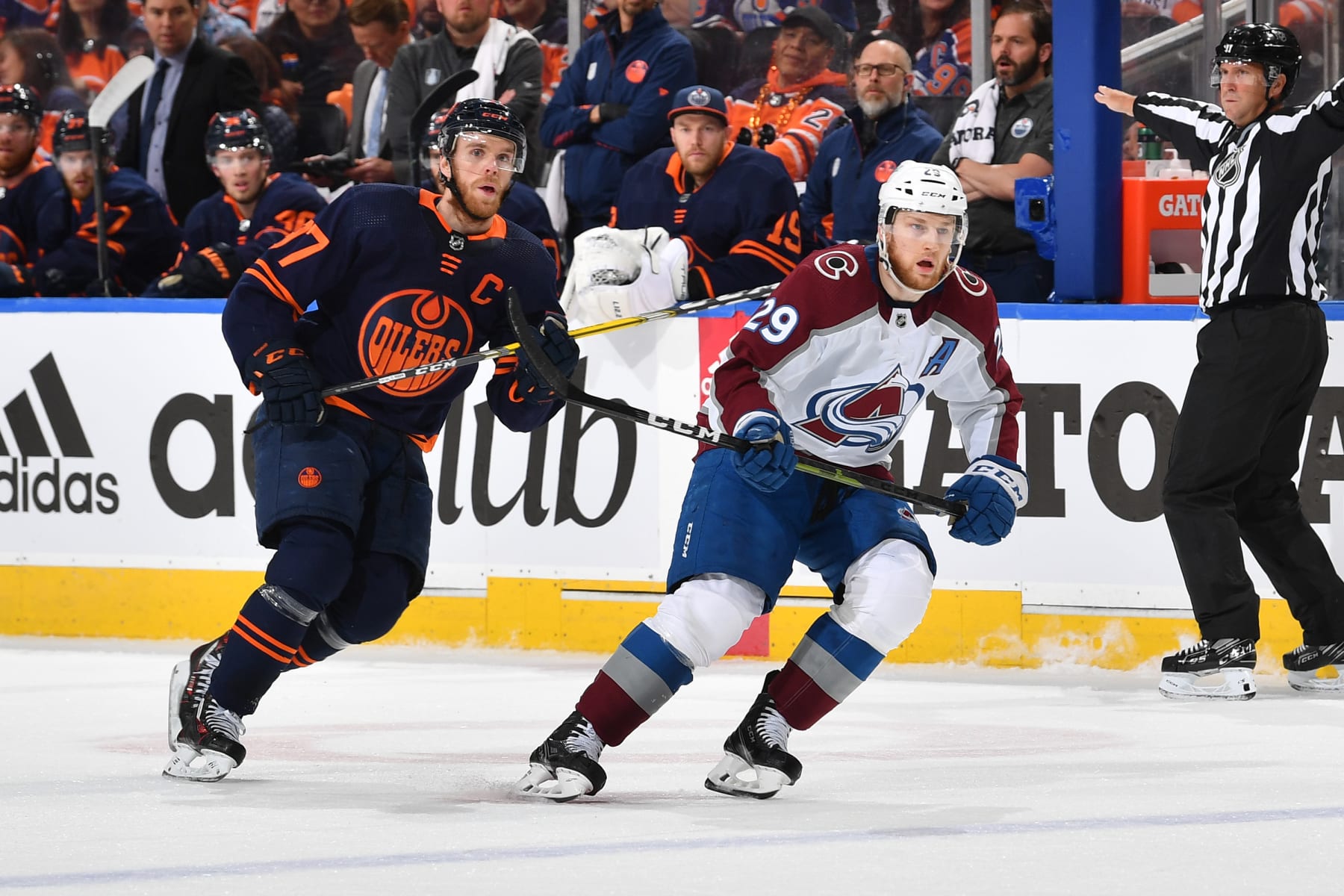
Canada has a number of talented forwards to draw upon for the World Cup of Hockey. For the top line, we've chosen three of the very best in Calgary Flames left wing Jonathan Huberdeau, Edmonton Oilers center Connor McDavid and Colorado Avalanche forward Nathan MacKinnon.
McDavid is the face of the NHL and the obvious choice to center Canada's top line. The league's leading scorer with 34 points in 18 games, the 25-year-old Oilers captain will still be in his playing prime for the 2025 tournament. A four-time winner of the Art Ross Trophy, McDavid has also won the Ted Lindsay Award three times and the Hart Memorial Trophy twice.
MacKinnon, 27, is a gifted center who can also play at right wing, making him a perfect choice to skate on McDavid's right side. Winner of the Calder Memorial Trophy in 2013-14 and the Lady Byng Memorial Trophy in 2019-20, MacKinnon was a driving force in the Avalanche's run to the 2022 Stanley Cup.
The 29-year-old Huberdeau is coming off a career-best 115-point performance with the Florida Panthers last season. Now with the Flames, he is among the league's elite playmakers. Winner of the Calder Trophy in 2013, he sits seventh in assists (291) and points (423) since reaching his playing prime in 2017-18.
Forward Line 2: Brayden Point, Mathew Barzal and Jordan Kyrou
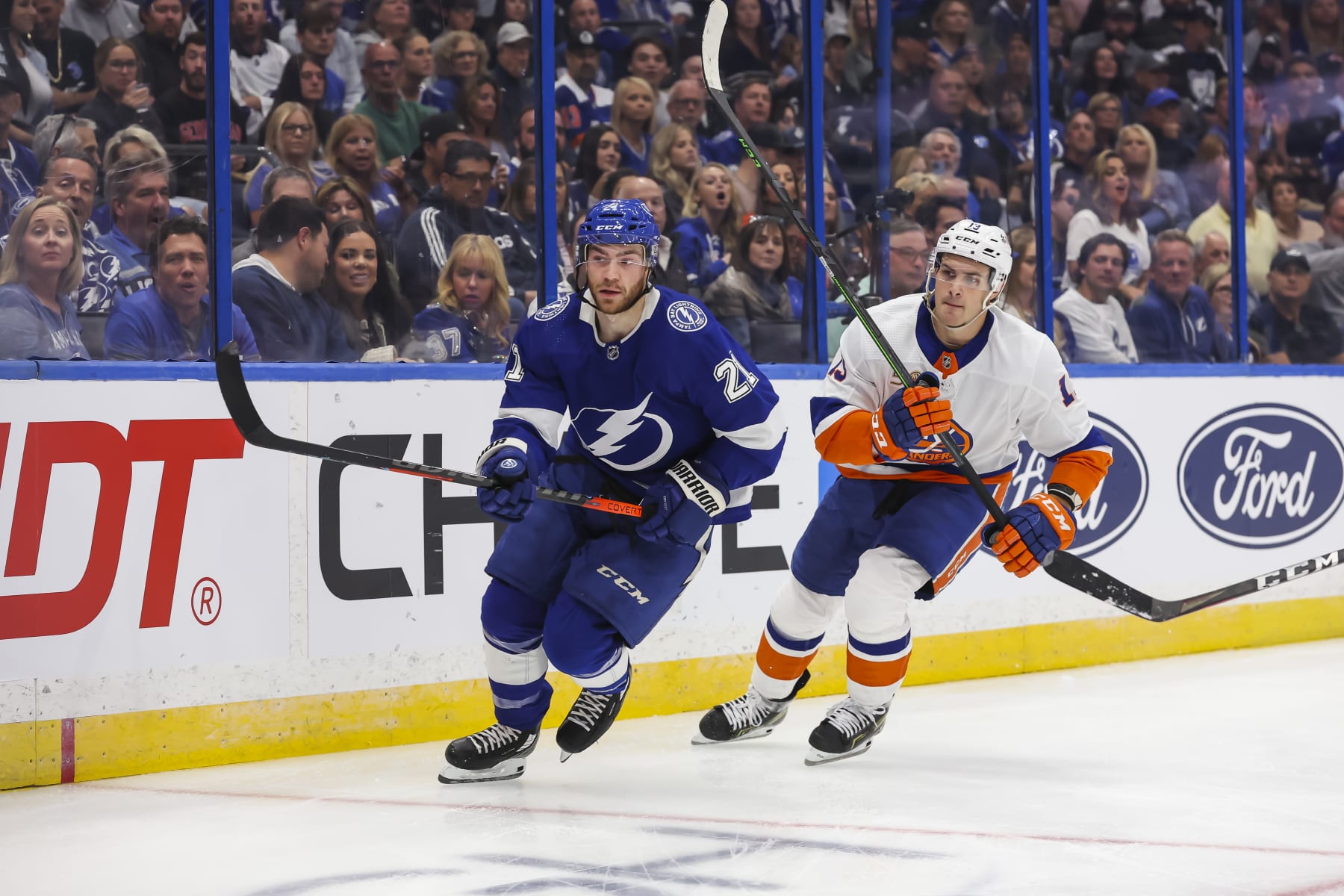
Our picks for Canada's second line offer a solid mix of speed and offensive skills. The New York Islanders Mathew Barzal centers the Tampa Bay Lightning's Brayden Point on the left wing with the St. Louis Blues' Jordan Kyrou on the right wing.
Point, 26, has two Stanley Cup championships and a reputation for clutch play. Since 2019-20, he's tied with Nathan MacKinnon for the most playoff goals (30), is tied for second in game-winning goals (7) and ranks third in points (61). Point usually plays center but can also skate on the wing. He's never tallied fewer than 40 points in a season.
Winner of the Calder Memorial Trophy in 2017-18, the 25-year-old Barzal is a quick, talented playmaker with 332 points in 381 career games. He leads the Islanders with 21 points, all but two of those coming from assists. Barzal should thrive with stars such as Point and Kyrou as his linemates.
Kyrou, 24, enjoyed a breakout performance in 2021-22 with a career-high 75 points. A versatile forward who can play center or right wing, the fleet-footed Kyrou would be a dangerous scoring threat whenever he's on the ice. His explosive speed and offensive skills would come in handy for Canada in power-play situations.
Forward Line 3: Pierre-Luc Dubois, Nick Suzuki and Mitchell Marner

Our third-line selections will all be within their prime when the 2025 World Cup of Hockey rolls around. With the Montreal Canadiens' Nick Suzuki centering the Toronto Maple Leafs' Mitchell Marner and the Winnipeg Jets' Pierre-Luc Dubois, this threesome would bring a strong mix of speed and two-way skills to Canada's lineup.
Marner is among the league's best two-way forwards. Since his NHL debut in 2016-17, the 25-year-old sits fourth among right wings with 477 points and is fifth among all skaters with 437 takeaways. He ranks second this season among Leafs skaters in time on ice per game (21:46), regularly seeing action on their power play and penalty kill.
The 24-year-old Dubois can play center or wing and is a reliable two-way forward, reaching or exceeding 48 points in four of his six NHL seasons. The 6'2", 205-pounder brings a good measure of size, strength and speed to this line. He can also be an asset for Canada on the power play and could move up in the lineup should injuries strike.
Suzuki has steadily developed into a reliable two-way center. The 23-year-old Canadiens captain can play center or right wing and possesses solid offensive skills, compiling at least 41 points in his previous three seasons. The 5'11", 208-pound Suzuki is difficult to knock off the puck. He leads the Canadiens with 23 points and is tied for the team high with 11 goals.
Forward Line 4: Brad Marchand, Sidney Crosby, Mark Stone
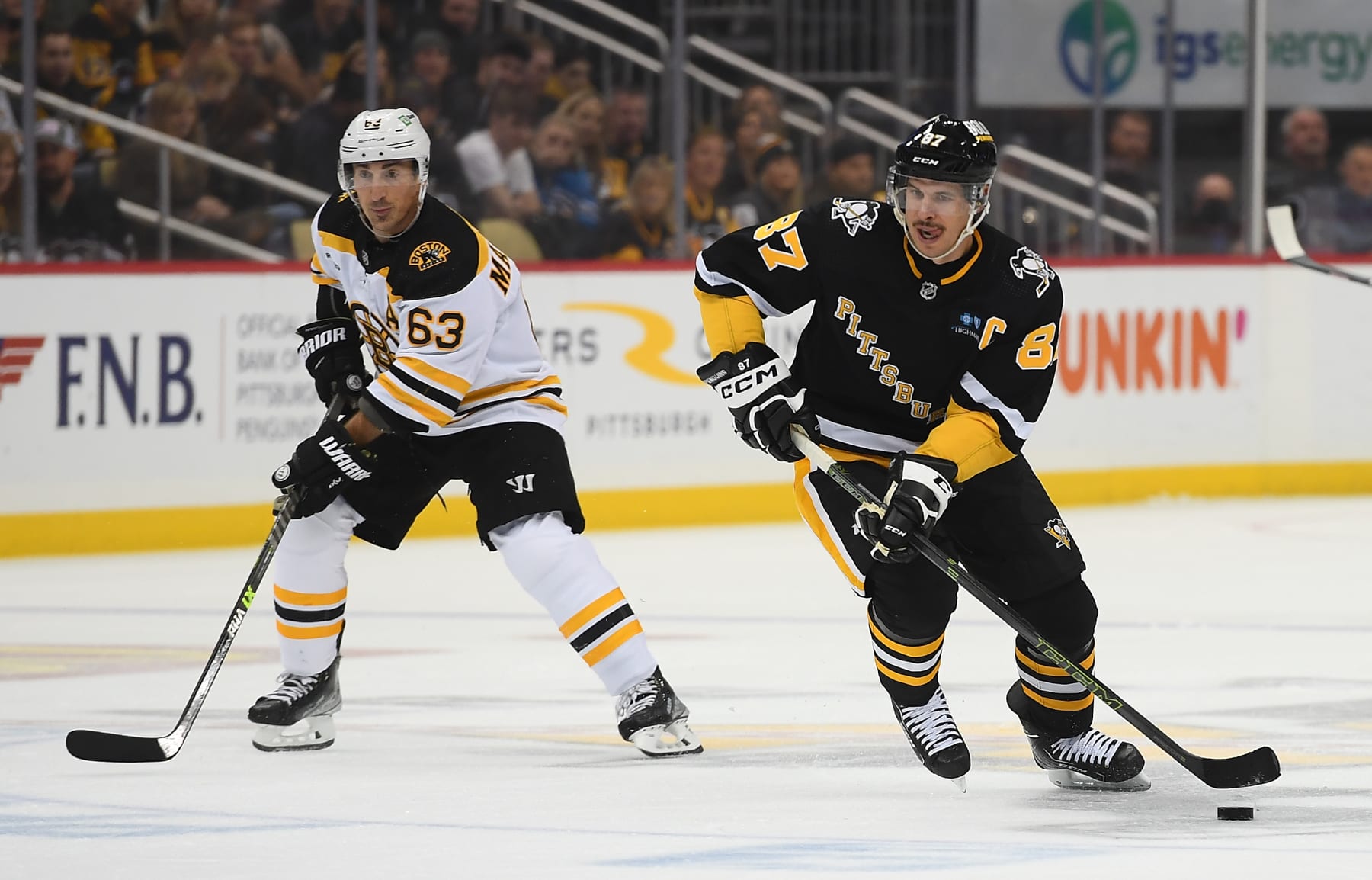
Our projected fourth line is also the oldest with the Pittsburgh Penguins' Sidney Crosby centering Boston Bruins left wing Brad Marchand and Vegas Golden Knights right wing Mark Stone. We're willing to gamble they can still provide Canada with experienced skill and leadership at the 2025 World Cup of Hockey.
Crosby, 35, isn't as dominant as he once was but remains among the NHL's best, leading the Penguins with 23 points in 18 games. The greatest player of his generation, the three-time Stanley Cup champion helped Canada win gold in the 2005 World Juniors, the 2010 and 2014 Olympics, the 2015 World Championship and the 2016 World Cup.
A pesky yet highly skilled left winger, Marchand is still one of the league's most dangerous scorers. Since 2015-16, the 34-year-old sits fifth among NHL skaters with 567 points. He skated alongside Crosby in the 2016 World Cup and helped Canada win gold at the 2007 and 2008 World Juniors and the 2016 World Championship.
Stone, 30, is a talented two-way winger. He's been a finalist for the Frank J. Selke Trophy as the NHL's top defensive forward twice in the past four seasons. Reaching 60 points six times in 11 NHL seasons, Stone is also the king of the takeaways with a league-leading 715 since his first full season in 2014-15.
Spares: Steven Stamkos, Ryan O'Reilly
Tampa Bay Lightning captain Steven Stamkos will be 35 when the 2025 World Cup comes along. Nevertheless, he continues to defy age with a career-best 106-point performance last season. His Stanley Cup championship experience, leadership and lethal one-timer could garner him a spot in his lineup if he remains productive.
St. Louis Blues captain Ryan O'Reilly's struggles this season could be a sign that his two-way style of play could be catching up with him. Nevertheless, the 31-year-old center could bounce back. A Stanley Cup champion in 2019, O'Reilly also helped Canada capture gold at the 2015 and 2016 World Championships and the 2016 World Cup.
Stats (as of Nov. 19, 2022) via NHL.com and Hockey Reference with additional information via Cap Friendly.
